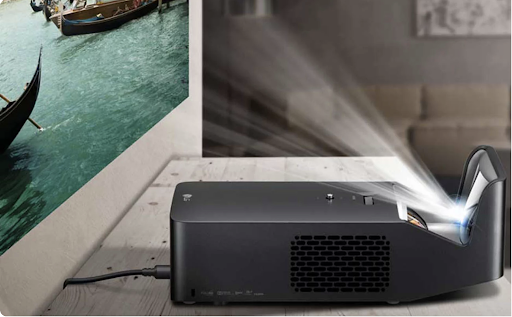Physics Affects Home Theater, No Matter What You Read on the Internet – TVs and Screens
People believe a lot of things. Personally, I don’t care what you believe in your heart of hearts. You believe that unicorns are real or that there are mole people living in the center of our planet. Whatever. But when your beliefs affect my life in any way, I take umbrage. Having to answer questions over and over about things people believe when the answer is, “That’s not how it works,” affects my life. Especially when the inevitable response is, “But I read on the Internet…” Well, read this on the Internet: Physics affects your home theater screen no matter what you believe. Let’s go through some common misconceptions.
Light on TV Screen
Question: I have light in my room, which TV should I get?
Answer: Buy some GD curtains.
There seems to be a belief that there is a magical TV out there that can give you a perfect image even in direct sunlight. Inky blacks, saturated colors, and full HDR no matter how much light is hitting the screen. Listen, no TV like that exists. If light hits your screen from the outside, it will wash out the image. The black areas of the screen will look grey. The colors will look washed out. Sure, you can get a TV that is so bright it will still look pretty good in high-light environments. But how will that affect the black levels? They won’t be black, that’s for sure! Not only that, it won’t look great once the sun sets.

Non-Reflective Screens
Question: I need a TV with a non-reflective screen, which should I get?
Answer: You don’t want a TV with a non-reflective screen.
The same people from above will sometimes pivot to asking about non-reflective screens. They’ll admit that they’ll never get the imaginary “perfect” TV for high-light environments. But they’ll “settle” for one that doesn’t have a bad reflection issue. Surely that exists?
Physics can fix many of the problems that affect your home theater, but no matter what you read on the Internet, it can’t fix them all at once. There are TVs out there with anti-reflective coatings. Just remember that any coating on the screen to combat reflections will affect the off-axis viewing. It is a trade-off. As your TV becomes more glare-resistant, its off-axis response will become worse and worse. Just like water-resistant isn’t water-proof, anti-glare isn’t no glare. It is just less. That’s because a screen with a true no-glare coating would look terrible from all but one sitting position – the one directly in front of the center of the TV. For all other seats, the screen will be all but unviewable. Since manufacturers know that no consumer wants a screen that is so limited in viewing angle, they provide less (not no) glare but wider viewing angles.

ALR Screens
Question: Which ALR screen should I get?
Answer: None.
We experience light every day and yet people still seem to believe crazy things. One such belief is that some special screen material out there will reject all the light in the room EXCEPT the light coming from your projector. How could the screen material know which light is coming from your projector and which is to be rejected? ALR (ambient light rejecting) screens are designed so that they reject (or absorb) light from all directions except one. You place your projector so that it is shooting light at the screen at the angle where the screen reflects (and not rejects) the light. In a higher-light environment, this means that your image will be less washed out and more vibrant.
But the screen doesn’t know what light is from the projector and what light just happens to be coming from the correct direction. Buying an ALR screen doesn’t mean you can place it in your completely white room with white marble floors and get a perfect image. Any light that has been reflected around the room will wash out the image. Not only that, but an ALR screen isn’t a superior screen in all situations. In low-light environments, they have hot-spotting and other issues.
Our Other Articles in This Series:
Physics Affects Home Theater, No Matter What You Read on the Internet – Speakers
Physics Affects Home Theater, No Matter What You Read on the Internet – Room Acoustics


